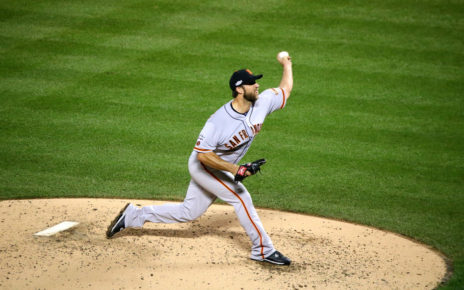Reading this site it is clear that there is a sabermetric bent. I run this site by myself, don’t tell Zoo and Franny that, and enjoy digging as deep as I can into not just the results we see on a baseball field or a stat sheet but also why those results came about. I’m also a human being and quite often my politics find their way into my writing. This isn’t a negative, rather, it is my firm belief that if we strip too much of our humanity away what we are left with is nowhere near as appealing. The posts about a player’s DRC+ should exist side by side with the posts about why labor is good, ownership is bad, and domestic abusers deserve consequences within the game.
I think the above ends up being true for most of the places we inhabit on the internet or within this shabbily constructed baseball community we have formed. There are exceptions, there are always exceptions. Sometimes our need to quantify, qualify, and label every aspect of the world of baseball runs into the brick wall that is humanity’s constant desire to defy the labels we rigorously attach. This is most clear when the issue of team chemistry is being discussed.
Coming from a medical background, in my non-baseball time I work as a Paramedic, I’m always shocked at how easily the baseball world dismisses the importance of team chemistry. There’s nothing like a Major League Baseball offseason to show someone that on the whole most fans do not believe team chemistry matters or in some cases that it’s even a concept that exists. We can’t define team chemistry, therefore it is not important seems to be the working agreement a lot of smart baseball folk have formed with the concept of team chemistry.
The reason I come away shocked from this assertion is that in my day-to-day life it is easy as can be to see how the importance of positive chemistry in the workplace. Being a Paramedic is a high-stress job with lots of variables at play. Having a good relationship with my partner on the ambulance is important to our success on many of the calls we run. Good team chemistry reduces the amount of stress that an individual takes on and allows individuals to perform at a higher level. We all know this is true and we don’t need any metric to tell us this is the case.
Of course, chemistry used to matter a lot, and I’m not advocating for a return to the days when teams valued chemistry far too much. There has to be a middle ground that can be reached. How a player gels with their teammates should be given equal consideration with how they handle a bat. The two worlds can coexist but we, as a community of fans and critics, have gone too far from the side of chemistry mattering more than skill to chemistry not mattering at all.
There are probably too many variables to account for when trying to gauge team chemistry in baseball. I know that folks like Sam Miller, Ben Lindbergh, and Russell Carleton have tried and come away less than pleased with their results. There are simply some elements of human existence that we cannot break down into neat little boxes and offer up detailed reasons for why that thing is, how the thing works, and the actual benefit or detriment gained from using the thing in question. Team chemistry falls into this area. We all know it exists, we know that it can both sink or elevate a team, and yet because we don’t know exactly how much it can help or hurt it is often easily dismissed.
This isn’t me railing against using the stats we do know to offer player valuations. I’m not saying that I’m going to stop using DRA, bWAR, FRAA, etc. to say, “Hey, Player X would really help this team, they should trade Player B to make space for X.” All the same, I’m going to strive to better understand what a player means to the clubhouse they inhabit as I navigate all the proposed player movement this MLB offseason. Maybe the Chicago Cubs moving Willson Contreras would benefit them or maybe it would hurt them greatly because of the hit to the clubhouse such a move would cause? It’s too bad no one has developed a stat like Chem+ to quantify the value of team chemistry. Maybe then more people would be willing to understand that who you are as a person is often just as important to your team winning as your skills with a baseball.
Lead photo courtesy of Unknown – USA Today




